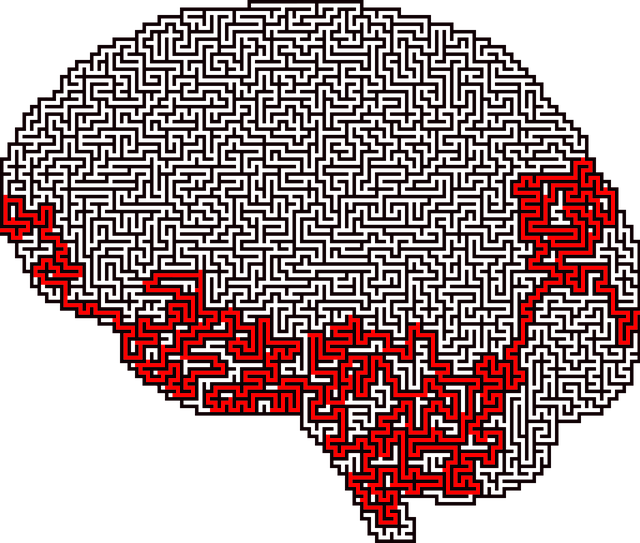Englewood Bipolar Disorder Therapy offers a holistic approach to managing bipolar disorder, combining evidence-based practices like CBT and DBT with coaching to empower individuals in symptom navigation and emotional regulation. This tailored program integrates conflict resolution skills, compassion cultivation, and cultural competency training, fostering self-acceptance and effective communication. Effective wellness coaching programs require understanding individual needs and leveraging evidence-based practices, with coaches supporting clients through skills development and resilience building. Tailored implementation, rigorous evaluation, community outreach, and public awareness campaigns enhance the success of Englewood Bipolar Disorder Therapy initiatives.
Mental wellness coaching programs are gaining prominence as powerful tools for managing and overcoming mental health challenges, particularly bipolar disorder. This article delves into the development of such programs, highlighting their potential to revolutionize engagement and outcomes in therapy. We explore understanding bipolar disorder, the role of coaching in supporting individuals affected, and provide practical insights on designing effective wellness coaching strategies. Furthermore, we focus on implementing and evaluating successful Englewood Bipolar Disorder Therapy programs.
- Understanding Mental Health Challenges: Bipolar Disorder in Focus
- The Role of Coaching in Supporting Individuals with Bipolar Disorder
- Designing Effective Wellness Coaching Programs
- Implementing and Evaluating Englewood Bipolar Disorder Therapy Programs
Understanding Mental Health Challenges: Bipolar Disorder in Focus

Mental health challenges are diverse, often complex, and deeply personal. Bipolar disorder, for instance, is a chronic mental health condition characterized by extreme mood swings that cycle between mania (elevated or irritable mood) and depression. Those affected experience periods of intense energy, euphoria, and productivity during manic episodes, contrasting with profound sadness, lethargy, and hopelessness in depressive phases. The management of bipolar disorder involves various strategies, including medication, psychotherapy, and lifestyle interventions.
Englewood Bipolar Disorder Therapy focuses on empowering individuals to navigate their symptoms, improve emotional regulation, and enhance overall well-being. Therapists skilled in treating bipolar disorder utilize evidence-based practices such as cognitive-behavioral therapy (CBT) and dialectical behavior therapy (DBT) to help clients develop coping mechanisms. Conflict resolution techniques, compassion cultivation practices, and healthcare provider cultural competency training are integral components of these programs, fostering a supportive environment that encourages self-acceptance and effective communication.
The Role of Coaching in Supporting Individuals with Bipolar Disorder

Coaching plays a pivotal role in supporting individuals with bipolar disorder by providing them with tailored strategies to manage their condition effectively. Through regular sessions, coaches help clients develop communication strategies that foster open dialogue about mood swings and triggers, enhancing their support networks. This proactive approach empowers individuals to recognize early warning signs and implement coping mechanisms promptly.
Moreover, mental wellness coaching incorporates elements of stress management workshops, teaching clients valuable techniques to navigate high-stress situations without exacerbating symptoms. Additionally, coaches assist in crafting personalized self-care routines that holistically address physical and emotional well-being. By integrating these practices into daily life, individuals with bipolar disorder can better regulate their moods, improve overall mental health, and enhance their quality of life, ultimately leading to more stable and fulfilling lives.
Designing Effective Wellness Coaching Programs

Designing effective wellness coaching programs requires a deep understanding of individual needs and leveraging evidence-based practices. Coaches play a pivotal role in supporting clients on their journey to mental wellness, focusing on skills development, goal setting, and fostering resilience. A structured approach, tailored to address specific challenges like Englewood Bipolar Disorder Therapy, is essential. Incorporating techniques such as cognitive-behavioural therapy (CBT), mindfulness exercises, and stress management workshops can significantly enhance the program’s impact.
Communication strategies are a cornerstone of successful coaching, encouraging open dialogue and building trust. Mental health awareness training for coaches ensures they can recognize and respond appropriately to various concerns. By integrating these elements, organizations can create dynamic programs that not only manage symptoms but also promote overall well-being. This holistic approach fosters an environment where individuals feel empowered to take control of their mental health, ultimately improving their quality of life.
Implementing and Evaluating Englewood Bipolar Disorder Therapy Programs

Englewood Bipolar Disorder Therapy programs require a strategic implementation and rigorous evaluation to ensure their effectiveness. The initial step involves tailoring the therapy models to the unique needs of the Englewood community, considering cultural sensitivity and accessibility barriers. Incorporating evidence-based practices, such as cognitive-behavioral therapy (CBT) and interpersonal and social rhythm therapy (IPSRT), can significantly enhance the program’s outcome.
Community Outreach Program Implementation plays a pivotal role in raising public awareness about bipolar disorder, reducing stigma, and encouraging individuals to seek support. Public Awareness Campaigns Development, focused on educating residents about early intervention strategies and available resources, complements these therapy programs by fostering an environment of understanding and empathy. Regular evaluation metrics should include participant feedback, clinical outcomes, and community engagement data to measure the success and make necessary adjustments to the Englewood Bipolar Disorder Therapy initiatives, ultimately contributing to the inner strength development within the community.
Mental wellness coaching programs, such as the Englewood Bipolar Disorder Therapy initiatives, offer promising approaches in supporting individuals living with bipolar disorder. By combining evidence-based practices with personalized coaching, these programs can help individuals navigate their mental health journeys effectively. Further research and tailored designs are essential to optimize outcomes, ensuring that those affected by bipolar disorder receive the comprehensive support they deserve. Implementing successful coaching models like these can lead to improved quality of life and enhanced resilience for those managing chronic mental health conditions.














